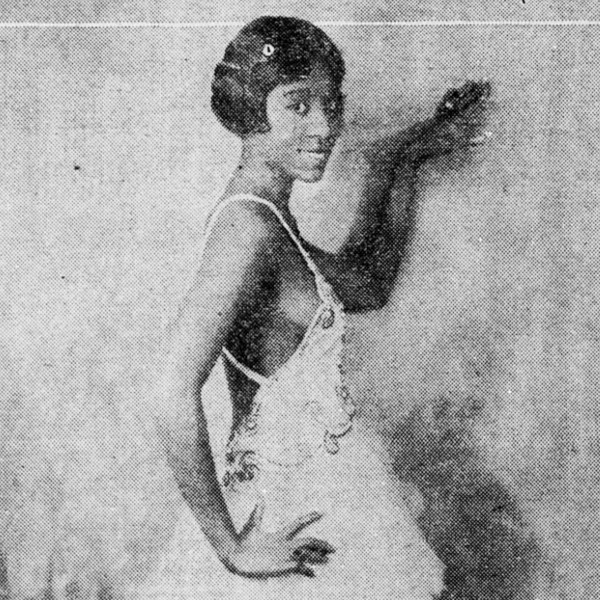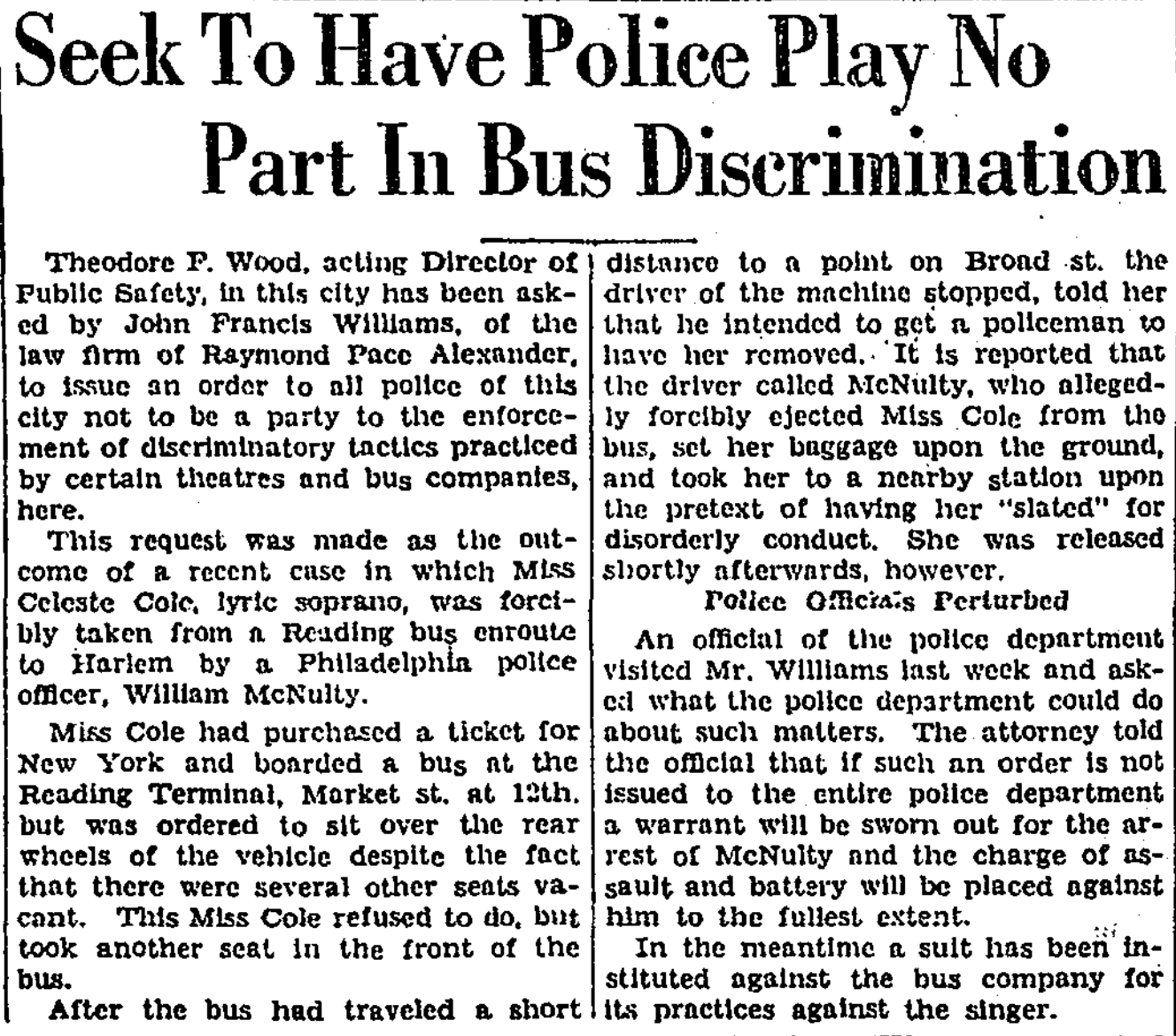
Philadelphia has a long history of people advocating for better and more equitable transit. Unfortunately, many instances of bus discrimination, and the protests they triggered, are rarely known about today. While Rosa Parks’s protest in Montgomery are well documented, there are plenty of examples of similar protests within Philadelphia.
The political climate for Black transit riders in the Northeast during the early 20th century wasn’t incredibly different from the Jim Crow South. Harassment and segregation were common occurrences in Philadelphia transit routes. Sarah Brown was dragged off of a Main Line Greyhound bus after she put her ticket on the counter instead of letting the bus driver grab it from her. In Philadelphia, Police forced Raymond J. Rogers off of a bus after he was refused the front row seat that he had specifically reserved.
Today, we want to highlight, in particular, the story of Celeste Cole, a singer born in Dallas, Texas in 1908. She was an accomplished and well known artist at the time, having graduated from the Detroit Conservatory of Music. After her graduation there, she went on to study music on scholarship in Russia. Celeste was also the winner of the Atwater Kent radio audition, a nationwide competition for young singers.
In 1933, Celeste had purchased a ticket for a bus to Harlem from Reading Terminal, here in Philadelphia as she had a performance set in Harlem. After boarding, she was ordered to sit in the rear of the bus over the wheels, even though there were other open seats on this bus. She refused to do this, and instead took a seat at the front. The bus had traveled a few blocks, when the bus driver made it known that he had called a policeman. That policeman, William McNulty, then forcibly removed Miss Cole from the bus along with her belongings. She was brought to a nearby police station to be ‘slated’ for disorderly conduct. After a short time, Celeste was released. Celeste Cole’s act of defiance in the face of racism set off a series of events that saw one of Philadelphia’s foremost Black law firms get involved in the fight for racial justice.

Celeste was represented by John Francis Williams, a member of the law firm of Raymond Pace Alexander. The firm asserted that the police should not be involved in enforcing the discriminatory practices that businesses had established. They made it clear that if this order was not given to the entire police department, that they would have to put out an arrest warrant for William McNulty with the charge of assault and battery. The law firm also filed a lawsuit against the Reading Bus Company for their treatment of Miss Cole. Unfortunately, we were not able to find any reporting on the outcomes of these lawsuits, but it is still evident that they were taking a stand against the discrimination and blatant racism that was commonplace at the time. Just two years later, in 1935 Raymond Pace Alexander and his wife Sadie T.M. Alexander had led the Philadelphia NAACP in successfully lobbying the Pennsylvania legislature to pass the Pennsylvania Equal Rights Bill of 1935. This bill made racial discrimination illegal in public accommodations, including transit.
Black activism has a long history of intersecting with transit rights activism, from the Freedom Riders to the Montgomery bus boycott and Rosa Parks, Black organizers have seen transit justice as a key part of the struggle for civil rights and justice for all. In Philadelphia and across the nation, transit continues to be a lifeline to link communities of color to economic opportunities. The struggle for transit equity in Philadelphia carries on to this day, and transit systems offer us a unique way to restructure society in a way that addresses historical inequities in our society, particularly those that deal with the Black community.
The struggle for transit justice continues: Join the TRU today